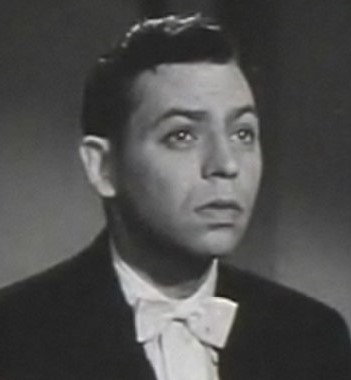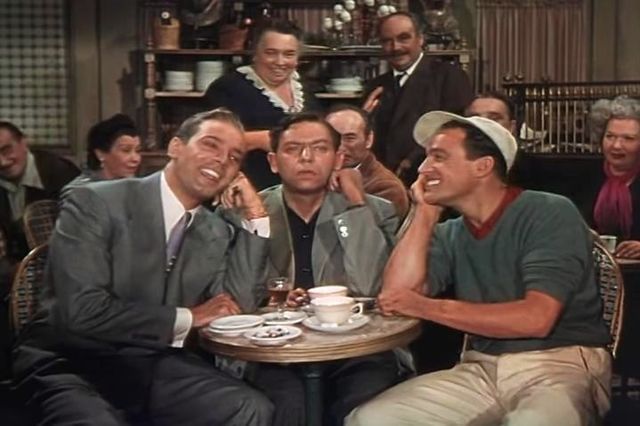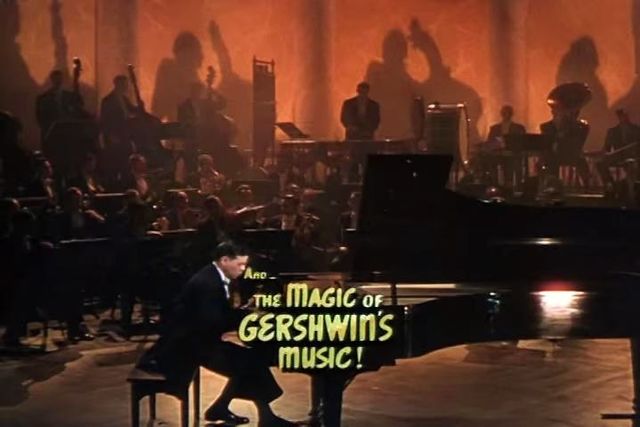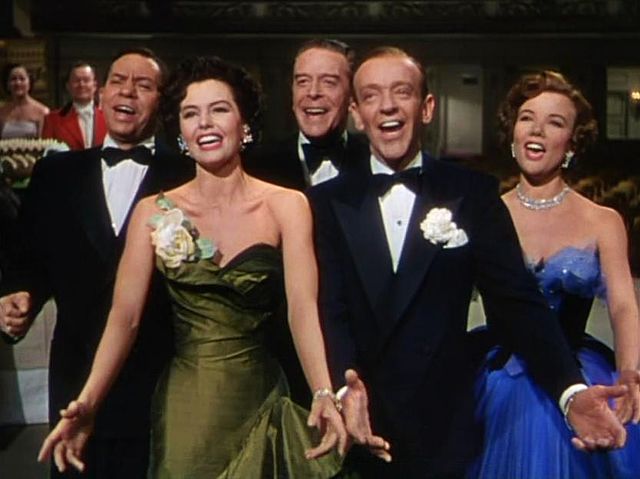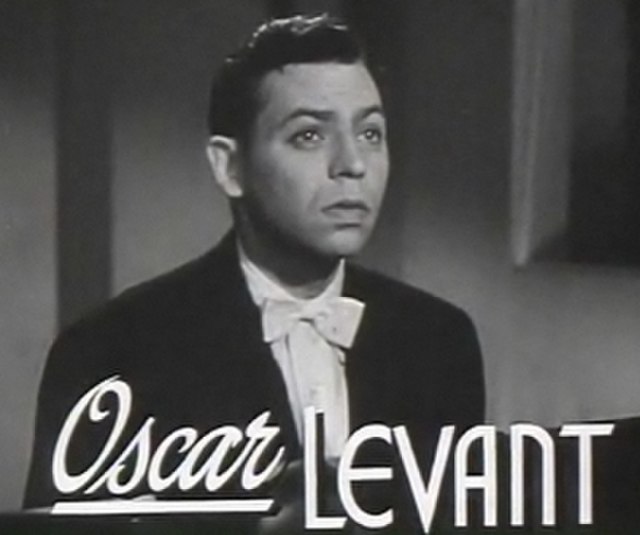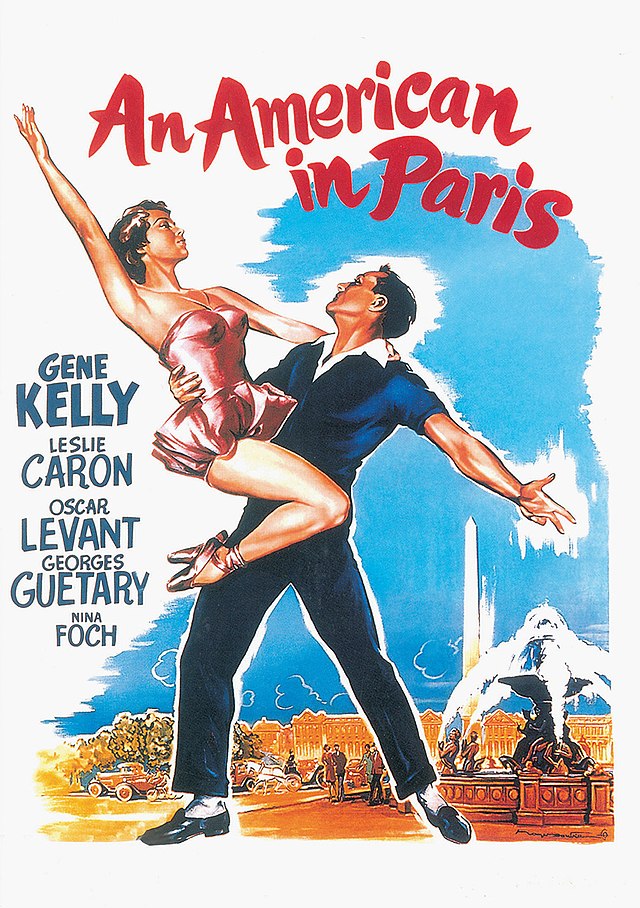Oscar Levant
back| Full Name | Oscar Levant |
| Stage Name | Oscar Levant |
| Born | December 27, 1906 |
| Birthplace | Pittsburgh, Pennsylvania, U.S. |
| Died | August 14, 1972 |
| Buried | Westwood Village Memorial Park Cemetery, Los Angeles, California |
| Married to | June Gale (m. 1939–his death in 1972) |
| Children | Marcia, Lorna, and Amanda Levant |
| Notable films | The Band Wagon (1935) - An American in Paris (1951) - Humoresque (1946) - Romance on the High Seas (1948) - Rhapsody in Blue (1945) |
Oscar Levant
The Wit of the Neurotic Age
Oscar Levant was a multi-talented figure in Hollywood, known for his career as a pianist, composer, author, and actor. He gained widespread recognition for his witty, self-deprecating persona, both on-screen and on radio and television. Levant was a close friend of George Gershwin and became one of the most famous interpreters of Gershwin's works, particularly Rhapsody in Blue.
He started his film career in the 1930s and appeared in various movies throughout the '40s and '50s. Despite his success in Hollywood, Levant was also known for his neuroses and struggles with mental health, which he frequently discussed with biting humor.
Related
Oscar Levant (1906 – 1972)
Biography and Movie Career
Oscar Levant was born on December 27, 1906, in Pittsburgh, Pennsylvania, into a family of Russian-Jewish immigrants. His father, Max Levant, was a watchmaker who also worked as a part-time bookie, and his mother, Annie Levant, nurtured her children's artistic talents. Levant's family was musical; his brother Benjamin was a violinist, which helped instill a deep love for music in young Oscar.
After his father’s death in 1922, Levant’s mother decided to move the family to New York City, where Oscar's musical talents could be honed. This relocation marked the beginning of his formal path toward musical greatness. He studied under respected piano teachers such as Zygmunt Stojowski and soon displayed prodigious skill.
Rise to Fame: Music, Hollywood, and George Gershwin
Levant quickly became known as a brilliant pianist. At 17, he moved to Hollywood, where he began working as a pianist and composer in silent films. He wrote music for films but longed to break into performing on a grander scale. His big break came when he met George Gershwin in 1928. The two became close friends, and Levant emerged as one of the most renowned interpreters of Gershwin’s works, especially Rhapsody in Blue. This relationship propelled Levant into the public eye and made him synonymous with Gershwin's music.
Levant’s career expanded in various directions. He became a successful film composer, writing scores for several films during the 1930s, while simultaneously embarking on a concert career that focused on performing Gershwin’s compositions. During this time, he performed with leading symphony orchestras and recorded many of Gershwin’s pieces, ensuring that his legacy would be inseparable from the music he loved.
Hollywood Career and Stardom
In the 1940s, Oscar Levant began to take on acting roles, first with Rhythm on the River (1940). However, it was his performance in Rhapsody in Blue (1945), a biopic about Gershwin, that cemented his position as a movie star. In the film, Levant played himself, further linking his public persona to the works of his late friend. His acting style was unique, often self-deprecating, sarcastic, and peppered with humor. This distinct personality set him apart from other actors and became one of his trademarks.
Levant went on to star in several notable films throughout the late 1940s and 1950s, including Humoresque (1946), Romance on the High Seas (1948), An American in Paris (1951), and The Band Wagon (1953). In these films, he often played a wise-cracking, neurotic sidekick or a piano-playing intellectual, roles that seemed to mirror his real-life persona.
Public Persona and Television Career
Levant was known not just for his performances but for his biting wit and dark sense of humor, which he displayed in his public appearances. His sardonic one-liners and commentary about himself—often focused on his neurotic tendencies—resonated with audiences. He often said, "There's a fine line between genius and insanity. I have erased this line."
Levant became a regular on television and radio shows. He was a frequent guest on The Tonight Show and Information Please, where his irreverent humor and candid discussions about his own struggles with mental health became both endearing and shocking. In the 1950s, Levant had his own TV show, The Oscar Levant Show, where he entertained viewers with music and commentary. His willingness to discuss his mental health battles, including struggles with depression and addiction to painkillers and tranquilizers, was revolutionary for its time, as such topics were often taboo in the 1950s.
Personal Life and Marriages
Levant married twice. His first marriage was brief and ended in divorce in 1932. He later married actress and singer June Gale in 1939, with whom he had three daughters: Marcia, Lorna, and Amanda. June was a supportive figure in Levant’s life, particularly as his mental health began to deteriorate in the 1940s and 1950s. Their marriage lasted until his death in 1972.
Despite his success, Levant was plagued by anxiety, hypochondria, and severe depression. He was in and out of psychiatric hospitals for much of his life and frequently used humor to mask his inner turmoil. His mental health struggles were worsened by an addiction to prescription drugs, which he openly discussed, even joking about it on talk shows. His self-awareness, combined with his neurotic wit, made him a unique presence in American entertainment.
Passions Beyond Film and Music
In addition to his work in music and film, Levant was also a talented writer. He authored several books, including the autobiography A Smattering of Ignorance (1940), in which he shared anecdotes about his life and famous friends, as well as Memoirs of an Amnesiac (1965), which offered a darkly comedic take on his battles with mental illness.
Levant’s sharp intellect and passion for reading and writing complemented his musical genius. He was known to be well-read in literature, philosophy, and history, and his intellectual pursuits often found their way into his witty conversations. Despite his sophisticated tastes, Levant remained approachable and relatable to his audience because of his openness about his vulnerabilities.
Decline and Final Years
As Levant grew older, his mental health struggles worsened. He spent significant time in psychiatric hospitals during the 1960s and withdrew from public life. His career slowed down as his health declined, and he made fewer public appearances. His candidness about his mental illness, however, helped pave the way for future discussions on mental health in Hollywood and beyond.
Oscar Levant passed away on August 14, 1972, in Beverly Hills, California, at the age of 65. The cause of death was a heart attack. He was buried at Westwood Village Memorial Park Cemetery in Los Angeles, where his legacy as a trailblazing musician, actor, and wit endures.
Legacy
Oscar Levant left an indelible mark on American popular culture, particularly in the realms of music and comedy. His unique combination of musical virtuosity, quick wit, and fearless self-expression made him an unforgettable figure in Hollywood’s Golden Age. He helped popularize Gershwin's music for generations to come and laid the groundwork for more open discussions of mental health in the entertainment industry.
While he is often remembered for his neurotic humor and dark wit, Oscar Levant’s genius as a pianist, composer, and interpreter of music remains his lasting contribution to the arts. His life was marked by both extraordinary achievement and personal turmoil, but his enduring influence is a testament to his exceptional talent and character.
Video on Quotes by Oscar Levant
Vulnerable Acting Style of Oscar Levant
Oscar Levant’s acting style was distinct and highly recognizable, characterized by his dry wit, neurotic demeanor, and intellectual sharpness. He wasn’t the typical leading man of his era, nor did he rely on physical comedy or grand emotional gestures. Instead, Levant carved out a unique niche in Hollywood, often playing a version of himself—cynical, self-deprecating, and fiercely intelligent. His screen presence was deeply tied to his real-life persona, blurring the lines between the character and the man.
Intellectual and Self-Deprecating Humor
Levant's humor was razor-sharp, often self-targeted, and driven by a keen sense of irony. He delivered his lines with an almost offhanded coolness, making his sardonic quips appear effortless. His humor was based on his ability to mock his own insecurities, neuroses, and hypochondria, making him an atypical Hollywood figure at the time. Rather than projecting confidence or charm, Levant leaned into his flaws, creating an endearing yet biting character who was often skeptical of success, love, or anything sentimental.
His self-deprecation gave his characters a vulnerability, making audiences sympathize with his struggles while laughing at his witty outlook. This style set him apart from the glamorous, idealized personalities often seen on screen during the Golden Age of Hollywood. Levant made being neurotic and intellectually disillusioned not only relatable but also entertaining.
Neuroticism and Vulnerability
Levant’s acting style was deeply rooted in his real-life struggles with mental health, and he brought an authentic sense of anxiety and vulnerability to his roles. Whether playing a piano virtuoso or a sidekick, he often infused his characters with a nervous energy, an underlying tension that reflected his own inner turmoil. His characters were often intellectuals or artists who were smart, funny, but visibly troubled, lending a sense of realism to his performances.
His onscreen neuroticism was not exaggerated but understated and natural, which made it even more impactful. He didn’t overact or try to turn his neuroses into slapstick humor; instead, his nervous ticks and anxious energy were subtle and layered. Levant was one of the few actors of his time willing to be so transparent about his own fragility, making his performances deeply human.
Naturalism and Self-Awareness
Levant’s acting was naturalistic and unforced. He didn’t try to embody roles vastly different from his real personality. Instead, he brought himself into the role, making his characters feel authentic. This self-awareness—of being a sardonic, neurotic intellectual—was part of his appeal. He never strayed far from this character, which allowed him to perform with an ease and familiarity that made his scenes memorable. Levant’s deadpan delivery, combined with his impeccable timing, meant that even when surrounded by larger-than-life characters like Fred Astaire or Gene Kelly, he stood out with his understated charm.
His performances in films like An American in Paris and The Band Wagon showcase this style, where Levant plays the quirky sidekick—a role often reduced to comic relief by other actors—but he brings complexity and depth. Levant wasn’t just funny; his characters had a melancholic edge that hinted at deeper personal struggles, making his humor feel more poignant.
Musical Talent and Character Integration
Levant’s roles often revolved around his prowess as a pianist, and his musical talent was seamlessly integrated into his acting. He frequently played musicians or composers, blending his real-life abilities into his characters. This allowed him to shine in musical films like Rhapsody in Blue and An American in Paris, where he performed complex pieces of music onscreen while delivering biting one-liners in between. His musical performances were not just background elements but crucial parts of his characters' identities.
Unlike many actors in musical films, Levant’s performances didn’t rely on showmanship or theatricality. When he played the piano on screen, he did so with a blend of technical skill and emotional restraint, letting the music speak for itself. His ability to fuse his character’s neuroticism with the calm, composed focus required for playing the piano created an interesting contrast that made his performances all the more compelling.
Cynicism and Anti-Sentimentality
Oscar Levant often played the cynical foil to more optimistic or romantic leads. He would break up moments of sentimentality with a sharp, cutting comment, preventing any scene from becoming overly saccharine. This anti-sentimental approach gave him a grounding presence in films that might otherwise have leaned too heavily into idealized romance or high-flying dreams.
In An American in Paris, for example, while Gene Kelly's character is swept away by love and ambition, Levant’s character, Adam Cook, remains pragmatic, offering a voice of reason laced with biting sarcasm. His cynicism added a layer of complexity to otherwise lighthearted films, allowing audiences to enjoy the spectacle while also recognizing the more grounded reality his character represented.
Comic Timing and Deadpan Delivery
Levant’s timing was impeccable. He knew exactly when to deliver a line for maximum comedic effect, often with a completely deadpan expression. His characters rarely smiled, and this made his humor feel all the more biting. He could deliver a perfectly crafted one-liner with no change in facial expression, letting the audience catch the wit in his words without needing any additional cues.
His deadpan delivery was a key part of his appeal. Levant didn’t need to exaggerate or use broad physical gestures to be funny—his humor came from his dry, almost detached manner. This subtlety in his performances made him stand out in an era when comedy often relied on more overt physical humor or exaggerated characterizations.
Oscar Levant Quotes
· "There's a fine line between genius and insanity. I have erased this line."
This is perhaps Levant’s most famous quote, reflecting his struggles with mental health and his awareness of his own brilliance and eccentricities.
· "I knew Doris Day before she was a virgin."
Levant’s irreverent humor shines in this cheeky quip about the image of the beloved, wholesome actress Doris Day, with whom he starred in Romance on the High Seas.
· "What the world needs is more geniuses with humility—there are so few of us left."
This playful and self-aggrandizing remark showcases Levant's ability to mix arrogance with humor, poking fun at both himself and the idea of intellectual superiority.
· "I’m a self-made man, but I think if I had it to do over again, I’d call in someone else."
A classic example of Levant’s self-deprecating wit, acknowledging his own faults while simultaneously poking fun at the concept of self-creation.
· "Happiness isn’t something you experience; it’s something you remember."
Levant often reflected on life with a melancholic undertone, and this quote expresses a deep sense of nostalgia, highlighting the fleeting nature of happiness.
· "I only make movies to pay for my piano lessons."
Levant’s primary love was music, and this quote humorously reflects his view of his acting career as secondary to his passion for the piano.
· "Underneath this flabby exterior is an enormous lack of character."
Another example of Levant's sardonic self-reflection, humorously addressing his insecurities and physical appearance with biting wit.
· "So little time and so little to do."
A humorous inversion of the common phrase "so much to do, so little time," this quip highlights Levant's sarcastic take on his often anxious and frenetic energy.
· "I was once thrown out of a mental hospital for depressing the other patients."
Levant’s openness about his mental health struggles, delivered with humor, made him a unique figure in Hollywood, and this quote illustrates his fearless honesty about his personal issues.
· "I don't sleep. I lie down and wait."
A darkly humorous reflection of Levant's insomnia and anxiety, revealing his ongoing struggles with restlessness and mental health in a concise and clever manner.
What Others said about Oscar Levant
Oscar Levant was a complex and multi-faceted figure, admired for his musical talent, wit, and candor, but also noted for his battles with mental health and addiction. Those who knew him, worked with him, or observed his public persona had much to say about him. Below are some notable remarks from contemporaries, critics, and colleagues about Oscar Levant:
George Gershwin (Composer and Close Friend)
- On Levant's musical talent:
"Oscar’s interpretation of my music, especially Rhapsody in Blue, is second to none. He brings a kind of brilliance and personal flair to my pieces that I deeply appreciate."
Gershwin recognized Levant’s exceptional musical ability and considered him one of the finest interpreters of his work, praising both his technical skill and artistic sensibility.
June Levant (Wife)
- On Levant’s humor and neuroses:
"Oscar was the funniest man I ever met. But that humor came from a place of pain, and there was always that underlying tension, his mind constantly at war with itself."
June, Levant’s second wife, understood his humor as a coping mechanism for his internal struggles and anxieties. Despite the difficulties of their marriage, she supported him throughout his many mental health crises.
Alfred Hitchcock (Director)
- On Levant’s personality:
"Oscar was wonderfully unpredictable. You never knew if he'd offer you a piano concert or a deep philosophical insight, but it was always something extraordinary."
Hitchcock admired Levant’s intellectual depth and his ability to seamlessly shift between humor and deep reflection, showcasing a rare combination of talents.
Fred Astaire (Actor and Dancer)
- On Levant as a performer:
"He was always the quickest in the room, the sharpest. His humor could slice through any situation, but he never let it overpower his musicianship, which was his true gift."
Astaire worked with Levant on several films and appreciated his intelligence and wit, but he recognized that, beneath the humor, Levant was a deeply gifted musician first and foremost.
Gene Kelly (Actor, Dancer, Director)
- On Levant’s contribution to An American in Paris:
"Oscar added something no one else could to An American in Paris. He wasn't just playing the piano or delivering lines—he brought a kind of intellectual charm and wit that elevated the entire film."
Kelly, who starred alongside Levant in An American in Paris, praised Levant’s unique combination of intellectual and musical talents, which added depth to the film’s character dynamics.
Critics and Commentators
- Leonard Bernstein (Composer and Conductor):
"Oscar Levant was a virtuoso of not only the piano but of the human condition. His humor was an attempt to deal with the fragility of life, and his music was his way of transcending it."
Bernstein, a fellow musician and contemporary, admired Levant’s combination of musical genius and intellectual wit, seeing him as an artist who used humor as a way to deal with his personal turmoil.
- Ed Sullivan (Television Host):
"Oscar Levant’s sharp, often cutting humor, combined with his willingness to bare his soul, made him unlike anyone else on television. He wasn’t afraid to let the audience see the real him."
Sullivan, who frequently hosted Levant on The Ed Sullivan Show, admired Levant’s authenticity on camera, noting how rare it was for someone to openly discuss their personal struggles with such wit.
Dorothy Parker (Writer and Humorist)
- On Levant’s humor:
"Oscar Levant is the only person I know who can make neurosis not just entertaining but enviable."
Parker, known for her own sharp wit, admired Levant’s ability to turn his struggles with anxiety and depression into a form of darkly entertaining humor that resonated with audiences.
Jack Paar (Television Host)
- On Levant’s candidness about mental health:
"Oscar Levant was one of the bravest people I ever had on my show. He talked about things nobody else would—his mental illness, his addictions—and he did it with humor that cut right through the taboos."
Paar admired Levant for breaking barriers regarding mental health discussions on national television, appreciating his willingness to be open about issues that were largely avoided during that time.
Frances Gershwin (George Gershwin's sister)
- On Levant’s friendship with her brother:
"Oscar was like family to us. He could be difficult, certainly, but there was something about his genius that George understood. They pushed each other to be better artists."
Frances noted that Levant’s relationship with George Gershwin was both professional and personal, as they shared a bond over their creative endeavors and pushed each other artistically.
Mental Health Advocates (Posthumous)
- On Levant’s contribution to public discourse about mental illness:
"Oscar Levant was a pioneer in normalizing conversations around mental health. He didn’t just talk about it—he joked about it, making it accessible to a public that wasn’t used to hearing about mental illness so openly."
Mental health advocates have praised Levant for using his platform to open up dialogues around mental illness at a time when such discussions were considered taboo.
Awards and Recognition
Classical Music Acclaim
- Renowned Interpreter of George Gershwin's Music: Levant is best known for his interpretations of George Gershwin's works, particularly Rhapsody in Blue and Concerto in F. His deep association with Gershwin earned him wide respect in classical music circles. Levant's recordings of these pieces were highly praised and remain seminal to this day. While formal awards were less common in classical music at the time, his performances with orchestras such as the New York Philharmonic were major professional milestones.
Hollywood Recognition
- Key Films and Critical Acclaim: While Levant didn’t receive many individual acting awards, his performances in classic films like An American in Paris (1951) and The Band Wagon (1953) earned critical praise for his unique style and sharp wit. Both films were box office successes and remain considered iconic musical films.
- An American in Paris won six Academy Awards, including Best Picture, though Levant himself was not individually nominated.
Television Success
- Pioneer of Candid Mental Health Discussions: Levant became one of the first public figures to openly discuss mental health issues on television. His appearances on talk shows like The Tonight Show and his own program, The Oscar Levant Show, were groundbreaking for their candid exploration of his personal struggles with anxiety, depression, and addiction. While these appearances did not win him formal awards, Levant’s influence on the normalization of discussing mental illness was significant and has been acknowledged retrospectively by media historians and mental health advocates.
Recordings and Musical Contributions
- Prolific Pianist and Recording Artist: Levant's numerous recordings, especially of Gershwin’s works, earned widespread recognition within the music industry. His ability to popularize classical pieces for a mass audience, particularly during the 1930s and 1940s, was highly regarded. His recording of Rhapsody in Blue is still considered one of the definitive versions of the piece.
- Although Levant did not receive specific industry awards, his records enjoyed commercial success, and he was widely respected by his peers, including major figures in both the classical and Hollywood music industries.
Influence and Retrospective Recognition
- Cultural Icon and Influence: Levant’s influence as a cultural figure grew in the years following his career. Though he was not showered with awards during his lifetime, his contributions to both music and entertainment were widely acknowledged in later years. His wit, his transparency about his personal struggles, and his musical genius left a lasting impression, especially on the way musicians and entertainers approach mental health discussions and the blending of intellectualism with popular culture.
Movies with Oscar Levant
1930s
The Dance of Life (1929)
Oscar Levant appeared in a minor role as a pianist in this early sound musical drama about a vaudeville performer struggling with success and his troubled marriage.
Night Parade (1929)
A crime drama set against a backdrop of high-society parties, Levant had a small uncredited role as a pianist.
1940s
Rhythm on the River (1940)
This romantic musical comedy stars Bing Crosby and Mary Martin as struggling songwriters. Levant plays a witty, self-deprecating pianist and provides comic relief.
Kiss the Boys Goodbye (1941)
A musical comedy where Levant plays a sardonic composer in a film about a stage director searching for the perfect girl for his Broadway show.
The Barkleys of Broadway (1949)
A musical comedy about a famous stage couple, starring Fred Astaire and Ginger Rogers. Levant plays Ezra Millar, the pair’s pianist and close friend, delivering his signature dry wit and humor.
Rhapsody in Blue (1945)
A biographical film about George Gershwin's life, with Levant playing himself, Gershwin’s friend and collaborator. The film showcases Levant's talent for playing Gershwin's music, including Rhapsody in Blue. Levant’s performance was widely praised, making this one of his most iconic roles.
Humoresque (1946)
A drama about a talented young violinist (John Garfield) and his passionate but troubled relationship with an older, wealthy woman (Joan Crawford). Levant plays the pianist and close friend, injecting his typical humor into a deeply emotional story.
Romance on the High Seas (1948)
A romantic musical comedy starring Doris Day in her film debut. Levant plays the role of a witty and neurotic composer. The movie centers on mistaken identities aboard a cruise ship.
You Were Meant for Me (1948)
A romantic musical film about a musician who marries a singer. Levant plays a wisecracking bandleader in a film that follows their careers and relationship through ups and downs.
1950s
An American in Paris (1951)
A classic musical directed by Vincente Minnelli, starring Gene Kelly. Levant plays Adam Cook, a cynical pianist and friend of the protagonist. The film is notable for its breathtaking ballet sequences and Gershwin music. Levant delivers both humor and memorable piano performances, including a solo rendition of Concerto in F.
O. Henry’s Full House (1952)
This anthology film adapts several of O. Henry's famous short stories. Levant appears in the segment titled The Ransom of Red Chief, providing comedic relief in a tale about two con men who kidnap a mischievous boy only to regret it.
The I Don’t Care Girl (1953)
A musical biopic about the life of vaudeville star Eva Tanguay, played by Mitzi Gaynor. Levant has a supporting role as a composer, once again lending his musical talent to the film’s score.
The Band Wagon (1953)
A classic MGM musical starring Fred Astaire and Cyd Charisse. Levant plays a neurotic composer, one half of a husband-and-wife writing team. The movie is about a washed-up movie star who attempts a Broadway comeback. It is considered one of the greatest musicals ever made, and Levant's dry wit adds a layer of humor throughout.
Pepe (1960)
This sprawling musical comedy features a wide array of cameos from Hollywood stars. Levant plays himself in a small appearance in this film about a Mexican ranch hand who travels to Hollywood to recover a stolen horse.
Television and Final Roles
Oscar Levant Show (1958-1960)
While not a movie, Levant hosted his own television show during this time, where he played the piano and talked openly about his neuroses, mental health, and life experiences.
Levant’s final on-screen appearance was in 1960, marking the end of a significant Hollywood career that balanced his talent as a pianist with his sardonic, humorous persona in films.

